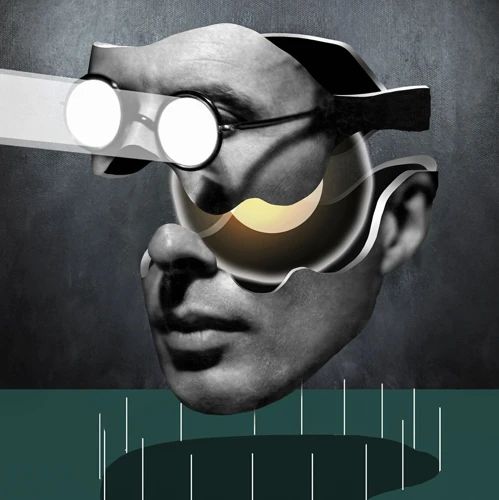Have you ever woken up from a dream feeling confused about whether it was just a regular dream or something more significant? Dreams can be mysterious and perplexing, leaving us wondering about their meanings and interpretations. However, distinguishing between regular dreams and premonition dreams can be crucial in understanding the messages our subconscious minds are trying to convey. In this article, we will explore the characteristics and interpretation of both regular dreams and premonition dreams, as well as provide practical tips for interpreting your dreams. Let’s unlock the mysteries of dreaming together.
Why Distinguishing Between Dreams is Important
Understanding the difference between regular dreams and premonition dreams is crucial. Regular dreams are common and happen to everyone, whereas premonition dreams are less frequent and have a deeper meaning. Being able to distinguish between the two can help provide insight into our subconscious desires, fears, and even provide messages about the future.
By being able to recognize premonition dreams, we can better prepare and prevent potentially negative experiences from occurring. For example, if we have a premonition dream about a car accident, it could be a warning to be more cautious while driving. Additionally, premonition dreams often have symbolic or metaphorical meanings, which means that they should not be taken at face value.
On the other hand, interpreting regular dreams can help us understand our daily life better. They may reveal our deepest hopes, fears, and desires. Dreams can act as a mirror for our emotional state and can help us become more self-aware.
Being able to distinguish between regular and premonition dreams is important because they serve different purposes. Understanding our dreams can provide us with valuable insights into our subconscious, allow us to interpret our feelings, and even warn us about potential events in the future. By paying attention to our dreams, we can gain a better understanding of ourselves and strengthen our connection to our intuition.
What are Regular Dreams?

Regular dreams are the type of dreams that most people experience on a regular basis. These dreams are essentially the brain’s way of processing information and emotions that we experience during our waking hours. Regular dreams are not premonitions, and are not believed to have any spiritual or prophetic meaning.
Characteristics of a Regular Dream
Regular dreams can range from mundane, everyday scenarios to completely bizarre and fantastical situations. They often involve people or places that are familiar to the dreamer, but can also include completely fictional people and places. Regular dreams may be forgotten shortly after waking up or remembered only vaguely. They often lack the clarity and intensity of premonition dreams.
How to Interpret a Regular Dream
Interpreting regular dreams is often difficult since they can be so random and abstract. However, some common symbols or themes may appear in regular dreams that can be interpreted differently for each individual. For example, dreaming of falling could represent a loss of control or instability in one’s life. Dreaming of flying could represent a sense of freedom or empowerment. However, it’s important to keep in mind that dreams are highly personal and can’t be interpreted through a one-size-fits-all approach.
7 Signs Your Dream Could Be A Premonition
Regular dreams are a normal part of the sleep cycle and are not believed to hold any special significance beyond what our subconscious mind is sorting through. However, some people may experience premonition dreams, which can feel different from regular dreams and may actually predict future events.
Characteristics of a Regular Dream
Dreams are a fascinating and mysterious phenomenon that have puzzled humans for centuries. They have been the subject of much discussion and interpretation, with many cultures believing that dreams have the power to reveal important truths about our lives. While some dreams can be vivid and memorable, others can be fleeting and easily forgotten. Regular dreams are the most common type of dreams, and while they may not always seem significant, they can offer valuable insights into our subconscious mind. Understanding the characteristics of a regular dream can help us become better at interpreting and finding meaning in our dreams. In the next section, we will explore the defining features of a regular dream.
How to Interpret a Regular Dream
Understanding the potential meaning behind a regular dream can be tricky, but here are some steps to help make the interpretation process a little easier:
- Reflect on your emotions: Pay attention to how you felt during the dream, as emotions can often hold a clue to the dream’s interpretation.
- Identify symbols: Look for any recurring symbols or images throughout the dream. These symbols may hold a deeper meaning and can be interpreted in different ways depending on the context of the dream.
- Consider the context: Think about the events leading up to the dream and what may have triggered it. This may provide some insight into the meaning of the dream.
- Think about your personal life: Consider if there are any issues or emotions that you are currently dealing with in your waking life. These may be reflected in your dreams.
- Don’t take everything literally: Dreams are often metaphorical and should not be taken at face value. Instead, try to decipher what the dream may represent or symbolize.
- Write it down: Keeping a dream journal can be helpful in identifying patterns or recurrent themes in your dreams. This can also help in tracking your progress in your overall dream analysis.
By following these steps, you may be able to gain some insight into the meaning behind a regular dream. It is important to note, however, that dream interpretation is not an exact science and may vary depending on the individual.
What are Premonition Dreams?

Premonition dreams, also known as precognitive dreams, are dreams that seem to predict future events or situations. These dreams can be about a person’s own future or can involve someone else’s life. Premonition dreams have been documented throughout history, and are often considered a form of prophecy or a supernatural ability.
Characteristics of a Premonition Dream
One of the key characteristics of a premonition dream is its vividness and realism. Unlike regular dreams which can be bizarre and nonsensical, premonition dreams are often very clear and realistic, and can leave a lasting impression on the dreamer. Another common characteristic of premonition dreams is a sense of urgency or importance. The dreamer may feel that the events depicted in the dream are not simply random, but have a specific significance.
How to Interpret a Premonition Dream
Interpreting premonition dreams can be a challenge, as they often involve symbolic or metaphorical representations of future events. However, there are some techniques that can be used to help discern the meaning of these dreams. One approach is to try to identify any specific symbols or images that appear in the dream. These symbols can be analyzed using traditional methods of dream interpretation, such as exploring their personal and cultural significance.
Another approach is to keep a dream journal and document any premonition dreams that occur. Over time, patterns may emerge that can help the dreamer to understand the meaning and significance of these dreams. Additionally, speaking with a professional or using online resources such as a dream dictionary can be helpful in deciphering the meaning of premonition dreams.
Premonition dreams have been documented throughout history and across cultures. In some cases, premonition dreams have been associated with spiritual or religious experiences. For example, in many indigenous cultures, dreams were considered to be messages from the spirit world, and were interpreted by shamans or other spiritual leaders.
Link: History of premonition dreams
In modern Western culture, premonition dreams are often dismissed or ignored, but for those who experience them, they can be a powerful source of guidance and insight. Understanding the characteristics of premonition dreams and learning how to interpret them can help individuals to harness the power of these dreams and use them to navigate their lives more effectively.
Characteristics of a Premonition Dream
Have you ever had a dream that felt more real than any other? A dream that seemed to offer a glimpse into the future? These types of dreams are known as premonition dreams and they can be perplexing to interpret. Unlike a regular dream which is often random and disconnected, premonition dreams have distinct characteristics that set them apart. By understanding these characteristics, you may be able to gain insight into possible future events. Let’s explore what makes a dream a premonition dream.
How to Interpret a Premonition Dream
Interpreting a premonition dream can be a bit tricky, as it requires a great deal of self-reflection and introspection. Here are some steps that can help you interpret your premonition dream:
- Record your dream details. As with interpreting any dream, it’s important to first record every detail you can remember. This includes the setting, people involved, emotions felt, and any significant events or symbols that stood out to you.
- Pay attention to your emotions. Premonition dreams often elicit strong emotions such as fear, anxiety, or a sense of foreboding. Take note of these strong emotional responses and try to analyze them further.
- Consider the context. Dreams don’t exist in a vacuum. Consider the current events and circumstances in your life, and try to connect them to the images and symbols in your dream. This can help provide a framework for interpreting the dream.
- Look for symbolism. Dreams are often full of symbolism, so look for any recurring images, colors, or symbols that may hold significance. For example, dreaming of a snake may symbolize fear or danger, while dreaming of a butterfly may symbolize transformation and growth.
- Trust your intuition. Sometimes, the best way to interpret a premonition dream is to simply trust your own intuition. Ask yourself how the dream made you feel and what your gut instinct is telling you about it.
- Reflect on past premonition dreams. If you’ve had premonition dreams before, reflect on them and consider how they may be connected. This can help you gain a deeper understanding of your current dream.
- Consider seeking outside help. If you’re struggling to interpret your premonition dreams, consider speaking with a therapist or dream analyst who may be able to provide guidance and support.
Interpreting premonition dreams is not an exact science, but by paying attention to your emotions, context, symbolism, and intuition, you may be able to gain a better understanding of the message your dream is trying to convey.
How to Tell the Difference

Differentiating between regular dreams and premonition dreams can be confusing and difficult. However, there are some key differences to look out for to determine whether you’ve experienced a regular or premonition dream.
Key Differences Between Regular and Premonition Dreams
1. Intensity and Clarity: Premonition dreams are often more vivid, intense, and memorable compared to regular dreams. In fact, you may remember every detail of the dream even years later, while regular dreams can be fleeting and easily forgotten.
2. Emotional Intensity: Premonition dreams also tend to evoke strong emotions like fear, anxiety, or melancholy that stay with you long after you’ve woke up. Regular dreams, on the other hand, can be emotional but are usually less intense.
3. Realism: Premonition dreams can be so vivid and intense that they feel real, as if you are actually experiencing them. Regular dreams, on the other hand, often involve unrealistic or surreal situations that you would not encounter in real life.
Examples of Regular and Premonition Dreams
To better understand the difference, let’s look at some examples of both types of dreams:
Regular Dream: You dream about flying or a talking animal. While these can be entertaining and bizarre dreams, they do not have any connection to your waking reality.
Premonition Dream: You dream of a loved one passing away or being in a car accident. These dreams are emotionally charged, vivid, and can leave you feeling anxious or scared upon waking up. They may also have a prophetic quality, as they seem to predict real-life events.
Why Premonition Dreams Occur
While scientists are not sure exactly why premonition dreams occur, there are several theories.
Theories Behind Premonition Dreams
Some believe that premonition dreams could be a result of a person having a heightened sensitivity to subtle environmental changes that might affect their physical or mental well-being. Others postulate that premonition dreams are a way for the subconscious mind to communicate information to the conscious mind.
Practical Tips for Interpreting Your Dreams
Here are some helpful tips to help you interpret your dreams:
Keeping a Dream Journal: Writing down your dreams as soon as you wake up can help you remember them and track any patterns or recurring themes.
Creating a Dream Dictionary: Creating a collection of symbols, words, and images that arise in your dreams can help you decipher their meanings and interpret them more effectively.
Speaking with a Professional: Consider speaking with a therapist or counselor who specializes in dream analysis if you find yourself struggling to interpret your dreams or if they are causing you distress.
Conclusion
While distinguishing between regular and premonition dreams can be challenging, the key differences between the two can help you determine what your dreams are trying to tell you. By keeping a dream journal and creating a dream dictionary, you can better understand the symbolism in your dreams and use them as a tool for personal growth and self-awareness.
Key Differences Between Regular and Premonition Dreams
As we delved deeper into the realm of dreaming, we discovered that there are two major categories of dreams – regular and premonition dreams. While they may seem similar at first glance, there are several key differences between the two. By understanding these differences, you can begin to unlock the secrets hidden within your subconscious mind. In this section, we will explore the contrasting features of these dreams and how you can tell them apart. So, let’s dive in and unravel the mysteries of dreaming together.
Examples of Regular and Premonition Dreams
Examples of Regular and Premonition Dreams can help you better understand the key differences between the two types of dreams. Here are a few examples:
| Regular Dream | Premonition Dream |
| You dream of enjoying a day out with your friends at a theme park. | You dream of being in a plane crash and experiencing the chaos that follows. |
| You dream of giving a speech at your best friend’s wedding. | You dream of your best friend getting into a car accident, and you rush to the hospital. |
| You dream of taking a trip to the beach and enjoying the sound of waves. | You dream of a tsunami sweeping through your town, leaving you and others struggling to survive. |
As you can see, regular dreams tend to focus on more common everyday activities, experiences, and emotions. Premonition dreams, on the other hand, are often more intense, vivid, and unsettling, featuring events that are unexpected, out of the ordinary and sometimes even traumatic. While regular dreams might offer some insights into your thoughts and feelings, premonition dreams may be interpreted as signals of things that will happen in the future. By learning to differentiate between these two types of dreams, coupled with intuitive practices, you can unlock the potential of dreaming to help better understand your life and surroundings.
Why Premonition Dreams Occur

Beliefs about why premonition dreams occur are varied and often conflicting. Some attribute them to the supernatural or divine intervention. Others believe that premonition dreams are simply the result of the brain processing information and making predictions about future events based on past experiences.
Theories Behind Premonition Dreams
One theory is that premonition dreams are a form of intuition. Intuition is defined as the ability to understand something instinctively, without the need for conscious reasoning. Intuition may occur when the brain processes information subconsciously, without the individual being aware of it. In this case, a premonition dream could be the brain’s way of alerting the individual to a potential future event.
Another theory is that premonition dreams are a result of the brain’s ability to recognize patterns and make predictions based on past experiences. The brain uses this information to make decisions and judgments about future events. In some cases, premonition dreams could be the result of the brain recognizing a pattern of events that could lead to a specific outcome.
Additionally, some researchers suggest that premonition dreams could be a result of the brain tapping into a collective unconscious. The collective unconscious is a term coined by Carl Jung to describe a shared unconscious that exists within all individuals. According to this theory, premonition dreams could be a result of the brain connecting with this collective unconscious to gain information about potential future events.
In conclusion, while the reasons behind premonition dreams remain mysterious, they are a fascinating area of exploration for researchers and individuals interested in dream interpretation. What is certain is that premonition dreams can provide valuable insights into our subconscious thoughts and feelings, and can potentially help us prepare for events that may occur in the future.
Theories Behind Premonition Dreams
Premonition dreams, also known as prophetic dreams, have been a topic of fascination and debate for centuries. Many people who have experienced these types of dreams believe that they can provide a glimpse into the future, while skeptics argue that they are simply coincidences or the result of our subconscious processing information that we have yet to consciously perceive. So, what are the theories behind premonition dreams?
One theory is that these dreams may be a result of our brain’s ability to pick up on subtle patterns and signals that we may not consciously recognize. Our brains are incredibly powerful and complex organs that are constantly working to make sense of the world around us. It is possible that, through a combination of pattern recognition and intuition, our brains are able to pick up on signals that something important or significant is about to happen.
Another theory is based on the concept of parallel universes. According to this theory, there are multiple universes that exist alongside our own, each with its own set of possibilities and potential outcomes. Premonition dreams may occur when our consciousness briefly enters into one of these alternate universes, allowing us to glimpse a potential future that could come to pass if we make certain decisions or take certain actions.
Yet another theory suggests that premonition dreams may be a result of psychic abilities or a connection to a higher power. Many cultures throughout history have believed in the idea of clairvoyance, or the ability to see events that have yet to occur. It is possible that some individuals are more in tune with this ability than others, leading to more frequent premonition dreams.
The theories behind premonition dreams are varied and complex, and there is no one definitive answer as to why these dreams occur. However, for those who experience them, they can be a powerful and thought-provoking experience that can provide a unique perspective on the nature of consciousness and the world around us.
Practical Tips for Interpreting Your Dreams
Understanding the meaning of your dreams can be a daunting task. In order to assist in the interpretation process, there are a few practical tips that can be helpful.
Keeping a Dream Journal
One of the best ways to help interpret your dreams is to keep a dream journal. This can be a physical notebook or an app on your phone. The important thing is to record as much detail as possible about each dream. This can include the location, characters, emotions, and any significant events or symbols that occurred during the dream. Recording your dreams in a journal will allow you to notice patterns and recurring themes, helping you to identify any recurring symbols or motifs.
Creating a Dream Dictionary
As you record your dreams in your journal, you may start to notice certain symbols or images that appear frequently. It can be helpful to create a dream dictionary which lists these symbols along with their potential meanings. For example, dreaming about water may represent emotions or intuition, while dreaming about a snake may represent transformation or fear.
Speaking with a Professional
If you are having trouble interpreting your dreams or would like additional guidance, it may be helpful to speak with a professional. A therapist or counselor who specializes in dream analysis can help you identify patterns and make connections between your dreams and your waking life.
Interpreting your dreams can be an enlightening experience that offers insight into your subconscious mind. By keeping a dream journal, creating a dream dictionary, and seeking professional guidance if needed, you can start to unlock the mysteries of your dreams and gain a greater understanding of yourself.
Keeping a Dream Journal
Have you ever woken up from a dream feeling perplexed and unable to decipher its message? Keeping a dream journal can be a helpful tool in understanding and interpreting your dreams. This practice involves recording the details of your dreams as soon as you wake up, which can help you identify patterns, themes, and symbols that may hold meaning for you. By examining your dreams over time, you may begin to notice patterns in your thoughts, emotions, and behaviors, which can lead to greater self-awareness and personal growth.
Creating a Dream Dictionary
One of the most practical tips for interpreting your dreams is to create a dream dictionary. This can be a handy tool for identifying patterns in your dreams and understanding the significance of different symbols and themes. Here are some key steps to creating your own dream dictionary:
- Start with a blank notebook: Choose a notebook that you can dedicate solely to your dreams, and keep it by your bedside.
- Record your dreams: As soon as you wake up, take a few minutes to jot down any details you remember from your dream. This should include not only the events that occurred, but also the emotions you felt during the dream.
- Identify recurring themes and symbols: Once you have recorded several dreams, look for patterns that emerge. Do you frequently dream about falling, or being chased? Are there any animals or objects that appear often in your dreams?
- Research the meanings of symbols: Once you have identified recurring symbols or themes, do some research on what they might represent. Keep in mind that the significance of symbols can vary depending on cultural or personal associations.
- Make connections: Use your dream dictionary to look for connections between your dreams and events or emotions in your waking life. Are there any patterns between your dreams and your current relationships, work situations, or personal challenges?
- Revise as needed: As you continue to record your dreams and explore their meanings, don’t be afraid to revise or update your dream dictionary.
Creating a dream dictionary can be a powerful tool for unlocking the mysteries of your dreams and gaining insight into your subconscious mind. By recording your dreams and analyzing recurring themes and symbols, you can gain a deeper understanding of your own psyche and the forces that shape your waking experiences.
Speaking with a Professional
When it comes to interpreting dreams, there can be a lot of confusion and uncertainty. If you are struggling to make sense of your dreams, it may be helpful to speak with a professional who specializes in dream interpretation. Here are some reasons why:
- Expertise: A professional dream interpreter can help you understand the symbolism and meaning behind your dreams. They can offer insights and analysis that you might not be able to decipher on your own.
- Objectivity: Sometimes, it can be difficult to interpret our own dreams because we are too close to the situation. A professional can offer an outsider’s perspective, which can often lead to breakthroughs in understanding.
- Accuracy: While dream interpretation is not an exact science, a professional can help you arrive at a more accurate interpretation. They have experience working with many different types of dreams and can provide context and perspective that you may not have considered on your own.
If you are considering speaking with a professional about your dreams, there are a few things to keep in mind. First, make sure you find someone who is qualified and experienced in dream interpretation. Look for someone who has a degree or certification in psychology or a related field, and who has experience working with dreams. Additionally, be prepared to discuss your dreams openly and honestly. The more information you can provide about your dreams, the better equipped the professional will be to help you understand them. Finally, remember that dream interpretation can be a process. It may take several sessions to arrive at a clear interpretation, so be patient and open to the process.
Conclusion
After learning about the differences between regular dreams and premonition dreams, it’s important to keep in mind that it is not always easy to tell which type of dream you are experiencing. Dreams can be confusing and sometimes difficult to interpret.
However, there are some steps you can take to increase your chances of correctly identifying and interpreting your dreams. Keeping a dream journal and creating a dream dictionary to record and analyze your dreams can be a valuable tool in understanding the messages your subconscious is trying to communicate.
Additionally, speaking with a professional, such as a psychotherapist, who specializes in dream analysis, can provide valuable insights and guidance in interpreting your dreams.
It’s also important to remember that the interpretation of dreams is highly subjective and can vary from person to person. Trusting your own intuition and understanding of your personal symbols and experiences is key in interpreting your dreams.
Overall, by paying attention to the characteristics of your dreams and taking the time to understand their messages, you can unlock the mysteries of dreaming and gain deeper insight into your subconscious mind.
Frequently Asked Questions
What is the purpose of dreaming?
There is no definitive answer to this question, but some theories suggest that dreaming helps the brain process emotions, consolidate memory, and simulate threatening situations to help prepare for real-life challenges.
Can dreams predict the future?
While some people believe that certain dreams can predict future events, there is no scientific evidence to support this claim.
What is lucid dreaming?
Lucid dreaming is a state of consciousness where the dreamer is aware that they are dreaming and can sometimes control the content of their dream.
How can I improve my dream recall?
Keeping a dream journal and practicing good sleep hygiene can help improve your ability to recall dreams.
Can some dreams be harmful?
Some people may have nightmares or recurring dreams that cause distress, but most dreams are considered harmless.
Are certain people more likely to have premonition dreams?
There is no concrete scientific evidence to suggest that certain people are more likely to have premonition dreams, but some people may have a greater sensitivity to their intuition or an increased ability to remember and interpret their dreams.
Can medication affect your dreams?
Yes, certain medications such as antidepressants, sleeping pills, and some pain medications can affect the content and vividness of your dreams.
Can animals dream?
Yes, many animals have been observed exhibiting behaviors and brain activity consistent with dreaming.
Can dreams provide guidance or insight?
While dreams cannot provide definitive answers or solutions, they may offer insights into the dreamer’s perceptions, emotions, and thought processes.
Is interpreting dreams scientifically proven?
The scientific community does not universally endorse dream interpretation, but some psychologists and therapists use it as a tool in their practice.








